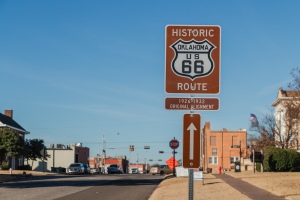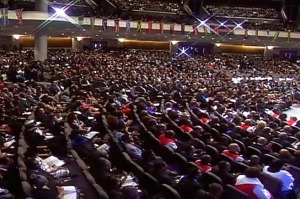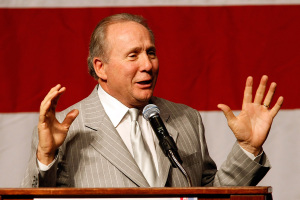Do Harsh Economic Conditions Signal Religious Revival?
Conditions are right for a spiritual revival, said American Evangelist Sammy Tippit this week, though not all agree.
Tippit sees the economic downturn and housing crisis as a time for churches to evaluate their mission and goals and to figure out what really matters.
"God uses these economic difficulties to make us take a hard look at what it is that we're doing and see what it is that's really fluff, what's really substantial, and what it is that God's in," Tippit told Mission Network News.
But Dr. John Hardin, a historian of business and religion in America, told The Christian Post that just because the U.S. is in an economic crisis doesn't necessarily mean it's going to spark a religious revival.
If God uses "economic recessions to tighten our focus on the sacred and loosen our grip on the secular, one would expect other recessions to spark revival," he said.
According to Tippit, "The last Great Revival that took place was when there was an economic crisis – 150 years ago during what was called 'The Great Prayer Revival.' It took place when the bottom fell out in the financial district in New York City."
Tippit believes the U.S. is seeing a similar economic crisis today but to a lesser degree.
A 2009 Barna report found that almost a third of adults had reduced giving to their churches, and nearly half said they also had curtailed their donations to other nonprofits. In April of last year that number stayed at 30 percent. Of that 30 percent, 24 percent said they had stopped giving to their church altogether.
Notably, a recent "State of the Plate" report revealed that church giving is on the rebound with 51 percent of churches having seen an increase in giving last year.
Also, the unemployment rate is currently at its lowest in three years, at 8.3 percent.
Nevertheless, Hardin cited various disasters in U.S. history to disprove the notion that revivals are born out of a bad economy. He pointed to the Panic of 1857, the collapse of the railroad boom in the late 19th century, which wrecked the American economy three times, the end of World War I, in which Americans were faced with 12 percent unemployment, and the Great Depression.
Hardin explained that during these times and after World War II, "we see no other examples of religious revivals in the wake of economic recessions."
In reality, most religious revivals in American life have come during times of economic prosperity, Hardin pointed out.
"In the early 18th century, the American colonies enjoyed the profits of British mercantile policies and the Atlantic trade system during the first Great Awakening. The second Great Awakening in the early 19th century stood on a booming market expansion in America. In the twentieth century, American religion exploded in growth in the 1950s, riding the waves of post-war economic surges," he explained.
Hardin told CP that revivals often happen, not because of religious fervor, but because of a principle that former White House chief of staff Rahm Emanuel once highlighted: "You never want a serious crisis to go to waste."
"The 'Great Prayer Revival' followed on the heels of the Second Great Awakening, a period of revival led by pastors such as Charles Finney, who used crises and peer pressure to nurture religious fervor. Finney believed that 'a revival is not a miracle; it consists entirely in the right exercise of the power of nature,'" Hardin explained.
So essentially, if a preacher could create the right conditions, then one could guarantee a revival. Hardin noted that on Finney's terms, "An economic recession is just the right spark."



























